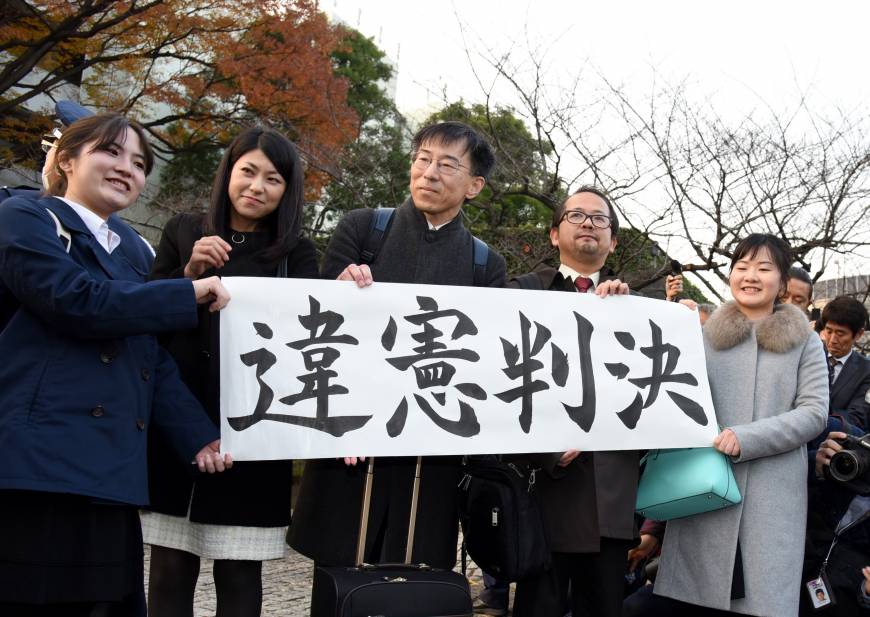A landmark court ruling has left feminist campaigners fuming, while also offering some succour and glimpses of future change.
In a suit brought forward by a group of women and one couple, the Japanese Supreme Court has upheld the law that says married couples must have the same surname.
Japan remains one of the few nations in the industrialized world where women are unable to retain their maiden names. Many professional women continue to use their maiden names at work even after they marry, though this is not legally binding.
In theory, the law also discriminates against men: married Japanese couples must have the same family name so as to be included in one of the spouse’s family registers (koseki). This can be either the man or the woman’s name. While occasionally a man marrying into a certain family may choose to take his wife’s name (e.g. to inherit her family’s business), in reality almost all times it is the woman who is forced to surrender their heritage.

Following previous court rulings against the plaintiffs as part of a long-running legal battle, the court has ruled that the current does not violate the Constitution, notwithstanding the Constitution’s supposed guarantee for equality regardless of gender.
Conservatives argue that the law does not discriminate and protects the family unit. However, historically speaking, commoners did not even have surnames in Japan until the Meiji Period (1868-1912) and there are cases of female nobles also keeping their name when they married if it was politically expedient. The current law dates back to 1898, which brought all citizens into a feudal family system. While Japan has since abolished and modernized its family system during postwar reforms, the law against retaining the maiden name remains in place.
Lawmakers remain largely opposed to the right for women to keep separate surnames, especially the ruling conservative LDP, claiming that having different surnames would destroy “the sense of family unity.”
Public opinion is also divided, reports The Japan Times.
A survey conducted by the Cabinet Office in 2012 showed that respondents were split, with 35.5 percent in favor of allowing separate surnames and 36.4 percent against. A survey conducted by public broadcaster NHK last month also showed that 46 percent of respondents support the idea, while 50 percent oppose it.
However, younger generations usually express support the idea of being able to choose.
The only practical exception to the law is when a Japanese man or woman marries a non-citizen (i.e. a foreigner). In these cases, it is technically possible for the Japanese person to retain their own family name, since the non-Japanese person does not have a family register.
The court did, however, offer some hope to rights campaigners (pictured above) in ruling that a separate law, which requires women to wait six months after divorcing before remarrying, was unfair. There is no such “remarriage moratorium” for men. However, the ruling merely said that the period was too long, not that the very idea of an embargo on an individual citizen’s right to marriage was wrong. (The ban is ostensibly there to help determine the paternity of children, though modern DNA testing techniques make such a system obsolete.) It left any further decision up to politicians to debate.
Justice Minister Mitsuhide Iwaki responded to the ruling’s suggested reduction to 100 days by promising legal revision and recommended regional governments now accept remarriages that come 100 days after a divorce.
























